Who is a pharmacist and what does he do?

Anyone interested in who a pharmacist is and what he does should also find out the level of salary and the procedure for training the profession. It is equally important to figure out where such a specialist can work, other than a pharmacy. And there are also other nuances - regarding professional development and job responsibilities, professional standards and other norms.

Peculiarities
It is most correct to characterize the profession of a pharmacist since it is a very popular and promising field of activity. A specialist who knows various medications, indications and contraindications for their use will definitely be needed in everyday life. There must be hundreds of pharmaceutical professionals in every big city. It should be noted, however, that their work - at least in the retail network - differs little from that of any other seller. The only differences are the specific product and the special responsibility for handling it.
The main thing that a pharmacist is useful to society is precisely because he brings the latest and most relevant information about medicines and medical products to consumers. With the help of this information, ordinary people can make the most correct decision and figure out which of the many similar products they need to buy. It is extremely important: such consultations cannot replace the work of a doctor. Prescribing and canceling drugs, replacing them, adjusting the dosage regimens can only be physicians, who, moreover, study the entire situation with a particular patient.
To compose a correct job description, you still need to find out what is the difference between a pharmacist and a pharmacologist. The latter is not a trade, but rather a medical professional. Pharmacologists are considered physicians by formal qualifications. They work closely with other doctors and advise them on the most accurate use of drugs in each case.
Unlike a pharmacologist, a pharmacist will not be interested in the condition of a particular patient and systematically "guide" him, he is not obliged to understand the intricacies of the treatment of especially complex diseases.
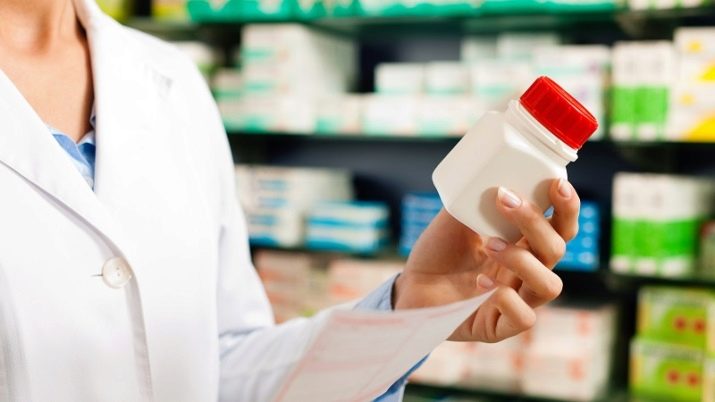
Another important distinction is between a pharmacist and a pharmacist. The latter is more of a "pumped-up version" of the pharmacist. He knows much more about medicines and can control the work of lower-level specialists, occupying the position of the head of the pharmacy (although this is not necessary). Pharmacists also work at industrial enterprises, where they perform the function of technologists. They may even be directly involved in the development of the latest medicines.
It is also important to give an overview of the history of the pharmaceutical profession. Although many ancient historical sources tell about the composition of drugs (and sometimes even a very complex composition), then it was more a craft and art, and not an area of verified technology. Yes, technically, pharmacy was very complicated already in the days of Claudius Galen and Avicenna. However, the pharmaceutical industry takes on a normal form only thanks to the successes of the natural sciences in the 17th - 19th centuries. Important conditions for its occurrence were:
- deepening knowledge about the functioning of organs, tissues and cells of the human body, about chemical reactions, about the metabolism and the activity of various substances;
- the emergence of industrial production of drugs;
- the emergence of laboratories and means of objective control of drugs;
- streamlining of treatment regimens for diseases (there was no need to talk about pharmaceuticals in the full sense at a time when every doctor prescribed what he wanted and how he wanted).

Advantages and disadvantages
The most important plus of the profession of a pharmacist is that it is “eternal” (in the same sense as the activity of a cook, engineer, teacher, translator or architect). People will be sick, and accordingly, they will need medicines for at least several more centuries, despite any progress in science and technology. "Nanorobots that heal everything themselves at the cellular level" still remain a fantasy, which means that a specialist who knows medicines will definitely be in demand. But this also implies a characteristic disadvantage of the profession: an increased level of responsibility. Errors in drug circulation are much more serious than a crooked dress or a slow website.
If a pharmacist works in a pharmacy, he will have to constantly contact people. And this inevitably means the danger of a number of infectious lesions (even strict measures only reduce it, but do not reduce it to zero). In addition, you will need to constantly communicate - which can be both positive and negative. But the relative stability and regularity of work will likely be a plus. Only very few people like constant risk and constantly changing environment - and they just have no reason to go into pharmaceuticals.
Other important properties of the profession include:
- relatively decent level of payment;
- the opportunity to make a career in a variety of areas;
- the opportunity to work at almost any age;
- average level of physical activity;
- high prestige;
- the opportunity to study in absentia;
- the need to work in shifts and / or at night;
- periodic processing.

Views
Salesman
Such a position can be occupied by graduates of universities and even specialized schools belonging to the junior medical staff. They sell and give out medicines on prescription free of charge. Such specialists keep a daily record of the funds being turned over. They also make up the primary documentation in the pharmacy.
At the request of the pharmacy pharmacist, the reserves of medicines and other goods in the pharmacy warehouse are replenished.
Researcher
This type of pharmacist can be found in specialized laboratories. They are looking for, for example, ways to treat specific diseases. They can assess the quality and effectiveness of the control of specific microorganisms with the help of drugs. Important: such a specialist cannot be engaged in research of medicines in general or their effectiveness in non-communicable diseases. The bulk of the work is carried out under the guidance of a pharmacologist and according to his direct instructions.
Distributor
This is the name of the personnel of pharmaceutical companies, whose duties include the promotion of medicines on the market. And it is impossible to do this competently without a thorough knowledge of the effectiveness and other features of the drugs themselves. In fact, this is a sales representative or consultant. But - with a purely medical bias. The comparatively high pay and motivation testifies in favor of such specialization, while not a very good reputation in society speaks against it.
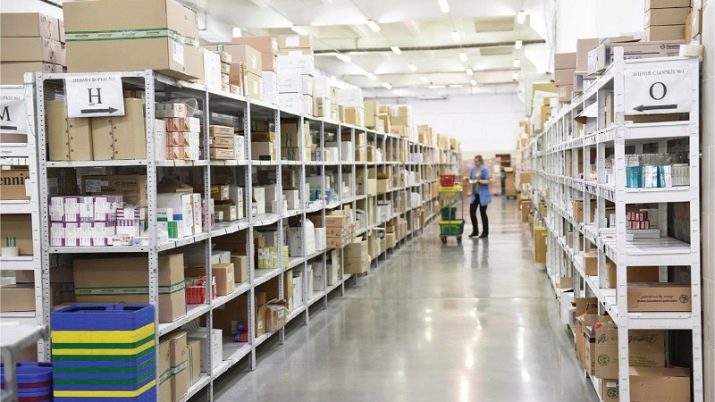
Manufacturer
This specialist works directly in drug factories. He deals with issues there:
- production technology;
- security;
- quality control of finished products.
All this is done not at will, but only on the instructions of managers (pharmacologists) and within the framework that the same leaders define. However, there are a few other specializations worth mentioning as well. These are primarily veterinary pharmacists. After all, "our smaller brothers" also need to be regularly treated, and veterinarians also need to consult on the use of medications. Such specialists can work in firms, in specialized pharmacies, in the field of academic research; the complexity of their work is no less than that of "ordinary" colleagues.
And here a pharmacist or pharmacist-analyst has become less and less common in recent years. Such professionals are called upon to supervise the preparation of medicines directly in pharmacies. Their problem is that domestic pharmacy production is shrinking, as is the range of products manufactured in this way. A pharmacist-analyst is a very responsible and complex business, the bar for him is even higher than for an ordinary specialist.
It is worth noting that he is usually charged with monitoring the shelf life of drugs.

Responsibilities
Typical job descriptions for pharmacy staff assume they are professional. Appointment to the relevant position and termination of powers are made by order of the head of the organization. In a pharmacy, the key functions are:
- acceptance for consideration of recipes;
- rejection of inappropriate and questionable recipes;
- independent production of medicines;
- acceptance of medicines;
- their distribution to storage locations;
- advice on the packaging of drugs;
- emergency help to people.
There are other job responsibilities that are prescribed by specific instructions. According to the professional standard, a pharmacy employee is engaged in:
- ensuring the storage of medicines;
- informing people about medicines;
- retail sale of medicines;
- taxation of recipes;
- consultations on groups of homogeneous drugs, on their interaction with food, among themselves;
- internal control of the dispensing of medicines and the execution of the relevant documents;
- office work in terms of cash and organizational and administrative documents;
- wholesale sales of medicines and other goods;
- using computer systems and software.
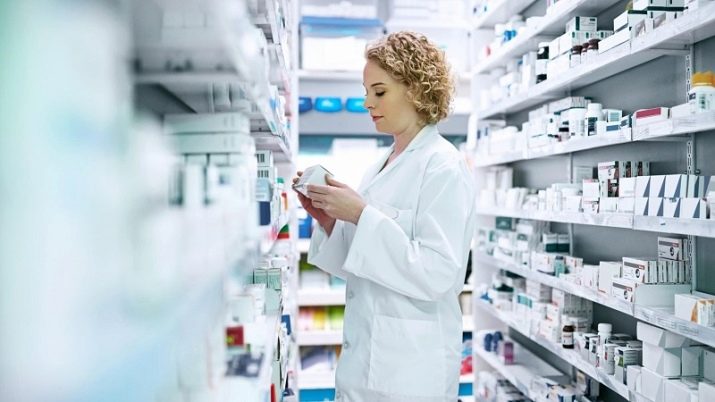
Qualification Requirements
The main norms in this regard are enshrined in the CEN.An ordinary pharmacy employee must have a secondary education in the relevant specialty. He must also show a specialist certificate. There are no special requirements for work experience. However, each organization has the right to establish additional standards in addition to the TSA.
Knowledge and skills
According to the established norms, the pharmacist must know:
- basic laws;
- regulations of the subordinate level;
- basic norms of the drug business;
- methods and means of delivering pharmaceutical information to non-specialists;
- medicine production technology;
- general nomenclature of drugs;
- medical ethics requirements;
- labor law;
- provisions on labor protection, fire, pharmacological safety;
- requirements for storage and dispensing of medicines.

Education
As already mentioned, you can study to be a pharmacist in Russia after grades 11 and 9 with equal success. But, of course, it is better to immediately focus on higher education. It gives a more solid level of knowledge and allows you to significantly expand your horizons. As for those who are limited to training in their specialty at the secondary level - in colleges and technical schools - they are unlikely to be left without work. The fact is that the rapid expansion of the pharmacy network forces to accept even people with minimal training.
Education at the intermediate level after the 9th grade will take 4 years. Those enrolled after grade 11 will save one year. In institutes, universities, academies, those who successfully complete the training program within the framework of the professional standard are awarded the diploma of a pharmacist (or, which is the same, a pharmacist of the highest qualification group). In universities, you can study in absentia or remotely, which will delight people who, for some reason, cannot regularly attend all lectures and seminars. However, one must understand that knowledge control will be no less strict than that of full-time students.
With full-time education, it will take 5 years to study. Part-time students will have an additional academic year in addition to this. The required disciplines are studied in:
- MIREA;
- Crimean University named after Vernadsky;
- MIPT;
- Moscow State University;
- Pirogov Russian National Research Medical University;
- Far Eastern University;
- Ural Medical University;
- TyumGMU;
- Omsk, Rostov, Krasnoyarsk, Bashkir, Pacific, Voronezh and Kuban medical universities;
- Medical University of Kemerovo;
- Medical University of Stavropol;
- Pharmaceutical College "New Knowledge";
- Medical College at Sechenov University;
- Faculty of Pharmacy, University of Chemistry and Pharmacy of St. Petersburg;
- branch of SPO Novosibirsk State Medical University;
- medical college of Kazan, Chelyabinsk, Samara or Nizhny Novgorod.
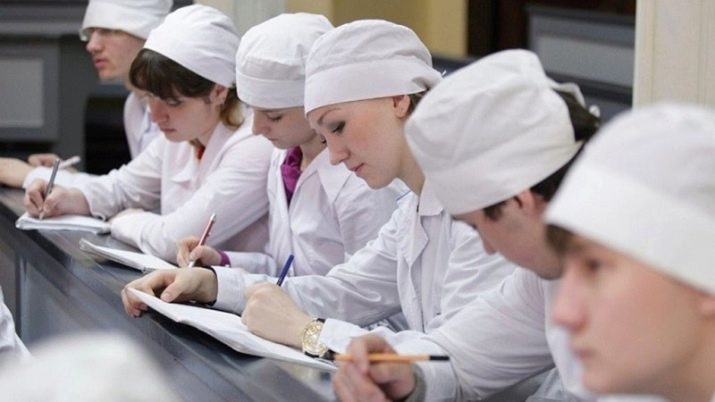
It is also important to know what subjects to take for admission to a pharmacological or pharmaceutical specialty. Speaking about which exams you need to take after grade 11, it is worth mentioning that most often these are chemistry, biology and Russian. However, each educational institution draws up its own educational program. It is on her, and in the most recent edition, that you should focus on preparing for admission. Some universities require entrance examinations in physics, however, you can always choose another educational institution.
It is extremely important to consider: it is impossible to become a pharmacist or pharmacologist without medical education. Only janitors or cleaners can go to work at a pharmacy without a special diploma. But even after competent training, in the process of work, further training is periodically required. This requirement for systematic retraining (retraining) is based on the concept of continuous pharmacological education that has been in effect in Russia since 2016. It implies that specialists not only study some new information for themselves in the courses, but also participate in thematic conferences.
Professionals note that this procedure has already yielded a positive result. The opportunity to receive a certificate of completion of certain courses for money has been significantly reduced and this is limited.
Yes, the accreditation of active pharmacists will not begin until 2021. But you need to prepare for it, tune in to it now. They plan to focus on remote forms of retraining.

Workplace
You need to know, of course, where pharmacists can work, except for a pharmacy (pharmacy), in which industries this profession is used. They are able to find a place for themselves:
- in a warehouse;
- in a specialized factory;
- in industry research institutes;
- in expert organizations;
- in supervisory authorities;
- in analytical laboratories;
- in organizations engaged in the wholesale of medicines.
In pharmacies, the pharmacist's workplace must be carefully equipped and functional. This specialist must prepare and maintain the showcase in perfect order. Clearly share:
- storage area for medicines;
- storage area for concentrated semi-finished products;
- a zone for the production of medical mixtures;
- shopping room;
- rest room;
- utility room (storage room for inventory and auxiliary property).
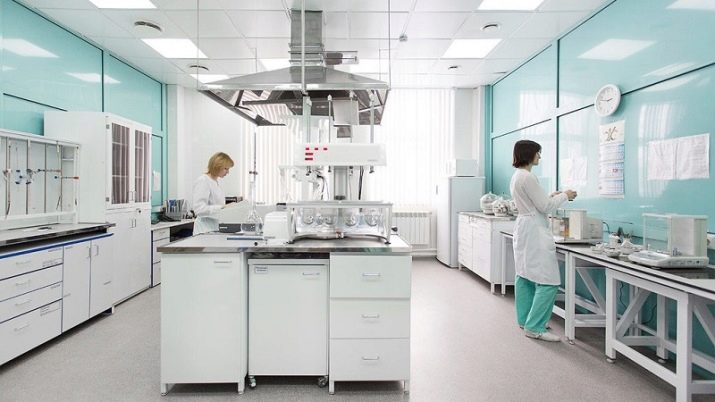
How much does he earn?
In recent years, the salary of pharmacists, as well as their demand, has been greatly increasing. Even beginner specialists can receive income from 20 - 25 thousand rubles, despite the lack of experience. If you strictly follow all the regulatory requirements, you can raise your earnings by 30-50% within six months. If the main activity is combined with administrative functions in a pharmacy or in production, then the total income can reach 70 - 90 thousand rubles. In laboratories, at production facilities and leading firms (both Russian and branches of foreign companies), income can be 200-300 thousand rubles, and the spread is significantly large.
It should be noted that in Moscow, pharmacists' income can be 50% higher than the average in Russia. Over time, the employees of the pharmacy from the consultants of the hall and the pharmacist become directors, heads of departments of the pharmacy. With further success, a position in a branch of a pharmacy chain may await them. Some people, even without higher education, after working for 5 years or more, achieve impressive achievements in an administrative career.
A scientific career consistently passes through the positions of project managers, departments, and, as a limit, entire laboratories.
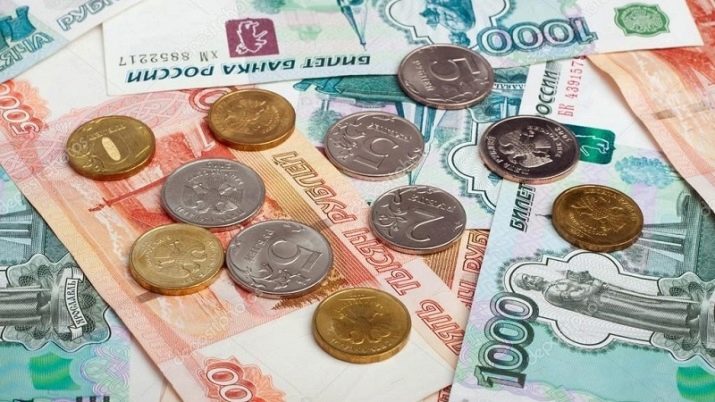









You can get a job as a medical representative, the salary is above average, very good.